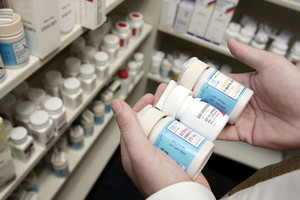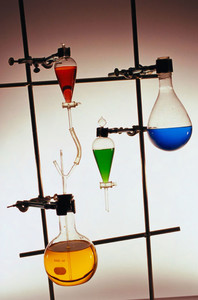The US Food and Drug Administration (FDA) announced on 21 June 2018 that it had withdrawn the draft guidance on analytical studies of biosimilars. The agency does, however, plan to issue an amended version that ‘will reflect state-of-the-art techniques in the evaluation of analytical data’ and give sponsors ‘appropriate flexibility’.
FDA withdraws biosimilar statistical guidance
Home/Guidelines
|
Posted 06/07/2018
 0
Post your comment
0
Post your comment

The agency released the draft guidance for public comment in September 2017 saying that it would, when finalized, provide advice on the evaluation of analytical similarity for biosimilars [1].
Statistical approaches to evaluate analytical similarity – Guidance for industry
Date: September 2017
The draft outlined the type of information sponsors should obtain about the structural/physicochemical and functional attributes of the reference product, how that information is used in the development of an analytical similarity assessment plan and the statistical approaches recommended for evaluating analytical similarity.
The agency received 17 comments from stakeholders, which included pharma companies, such as Amgen, Boehringer Ingelheim, Genentech and Pfizer, as well as physician associations, e.g. the Hematology/Oncology Pharmacy Association (HOPA), and industry groups, such as the Association for Accessible Medicines (AAM) and its Biosimilars Council [2].
FDA now says that ‘after considering public comments that the agency received about the draft guidance, FDA determined it would withdraw the draft guidance as it gives further consideration to the scientific and regulatory issues involved’. It added that ‘comments submitted to the docket addressed a range of issues that could impact the cost and efficiency of biosimilar development’. Issues highlighted included the number of lots of reference products to be sampled. The agency called for a minimum of 10 reference product lots and recommended alternative assessments in cases where access to the reference product is limited.
Stakeholders also criticized the specific statistical methods proposed by the guidance for determining analytical similarity and the requirement that lots come from US-sourced reference products.
FDA did not say when a new draft guidance document would be available, but said that it ‘will communicate publicly when new draft guidance is issued in relation to the evaluation of analytical data between a proposed biosimilar product and a reference product’.
Related articles
FDA issues draft guidance on biosimilar meetings
References
1. GaBI Online - Generics and Biosimilars Initiative. FDA issues draft guidance on statistical approaches to evaluating similarity for biosimilars [www.gabionline.net]. Mol, Belgium: Pro Pharma Communications International; [cited 2018 Jul 6]. Available from: www.gabionline.net/Guidelines/FDA-issues-draft-guidance-on-statistical-approaches-to-evaluating-similarity-for-biosimilars
2. GaBI Online - Generics and Biosimilars Initiative. Stakeholders comment on FDA’s draft statistical biosimilarity guidance [www.gabionline.net]. Mol, Belgium: Pro Pharma Communications International; [cited 2018 Jul 6]. Available from: www.gabionline.net/Guidelines/Stakeholders-comment-on-FDA-s-draft-statistical-biosimilarity-guidance
Permission granted to reproduce for personal and non-commercial use only. All other reproduction, copy or reprinting of all or part of any ‘Content’ found on this website is strictly prohibited without the prior consent of the publisher. Contact the publisher to obtain permission before redistributing.
Copyright – Unless otherwise stated all contents of this website are © 2018 Pro Pharma Communications International. All Rights Reserved.
Source: US FDA
Policies & Legislation
Strategic plans of ANVISA and COFEPRIS to advance health regulation
Panama enacts new bill to guarantees the supply of medicines
Reports
Follow-on biological/biosimilar approvals in Latin America by therapeutic class
Follow-on biological/biosimilar approvals landscape in Latin America
Most viewed articles
The best selling biotechnology drugs of 2008: the next biosimilars targets
Global biosimilars guideline development – EGA’s perspective
Related content
New decree for the prescription and commercialization of medicines in Argentina
FDA issues draft guidance on biosimilars and interchangeable biosimilars labelling
WHO’s revised guideline to safe and effective biosimilar products
New FDA guidance on statistical approaches to establishing bioequivalence
New decree for the prescription and commercialization of medicines in Argentina

Home/Guidelines Posted 11/03/2024
FDA issues draft guidance on biosimilars and interchangeable biosimilars labelling

Home/Guidelines Posted 22/09/2023
New FDA guidance on statistical approaches to establishing bioequivalence

Home/Guidelines Posted 20/01/2023
The best selling biotechnology drugs of 2008: the next biosimilars targets






Post your comment